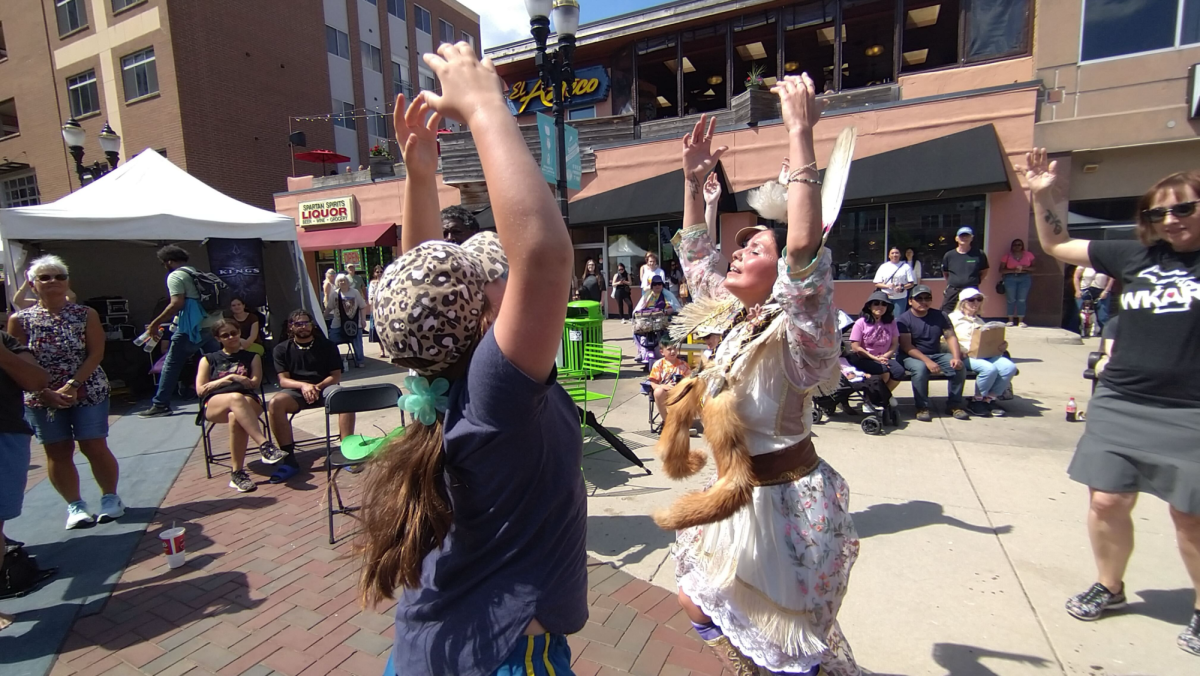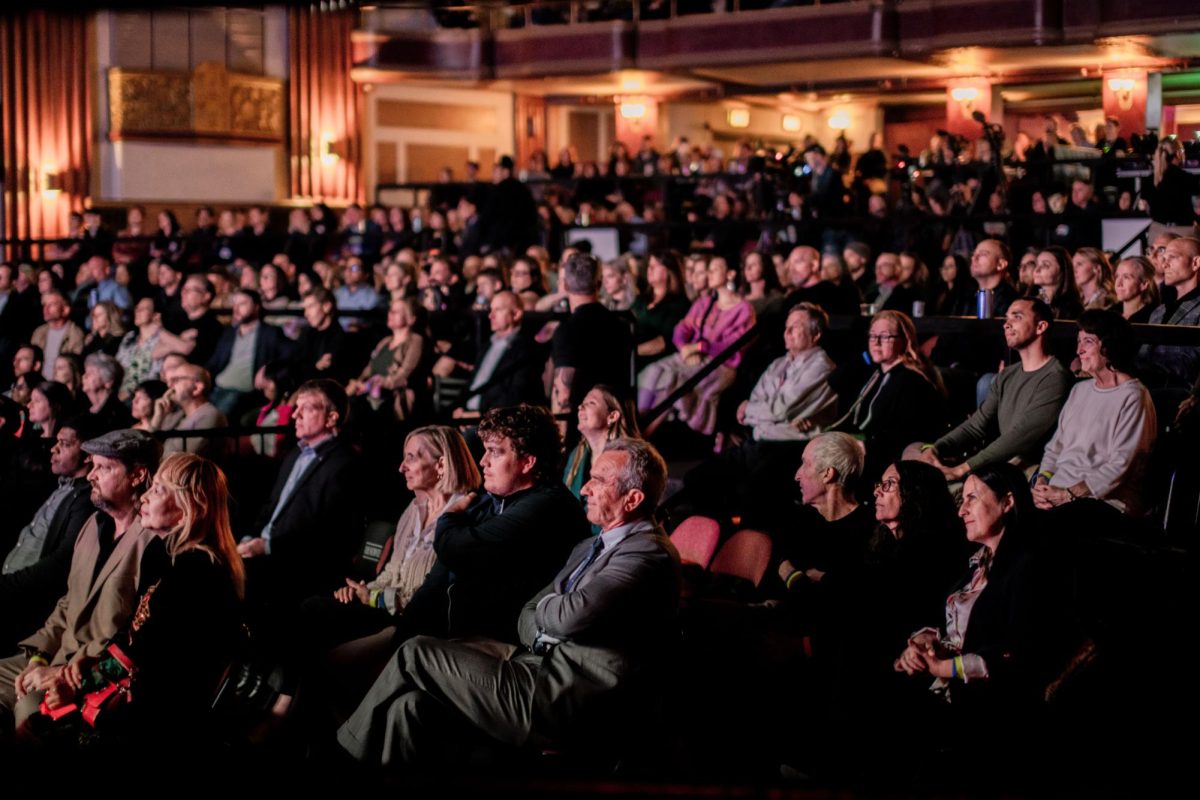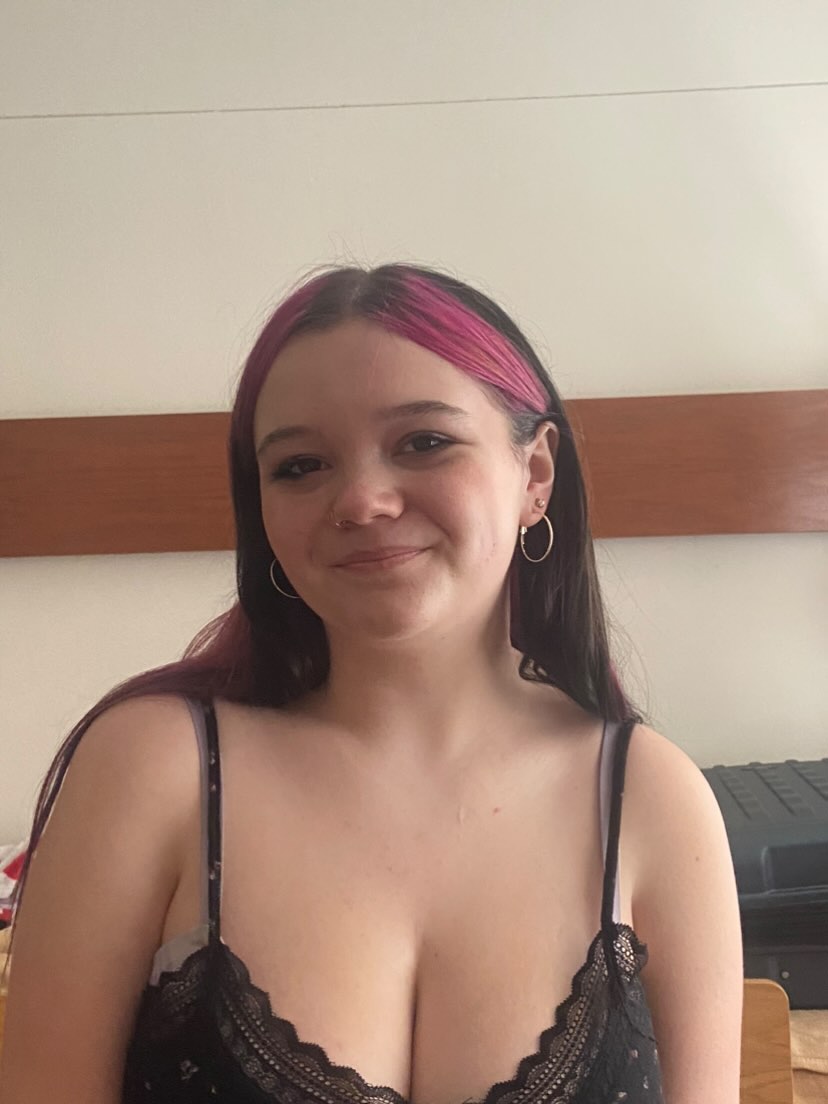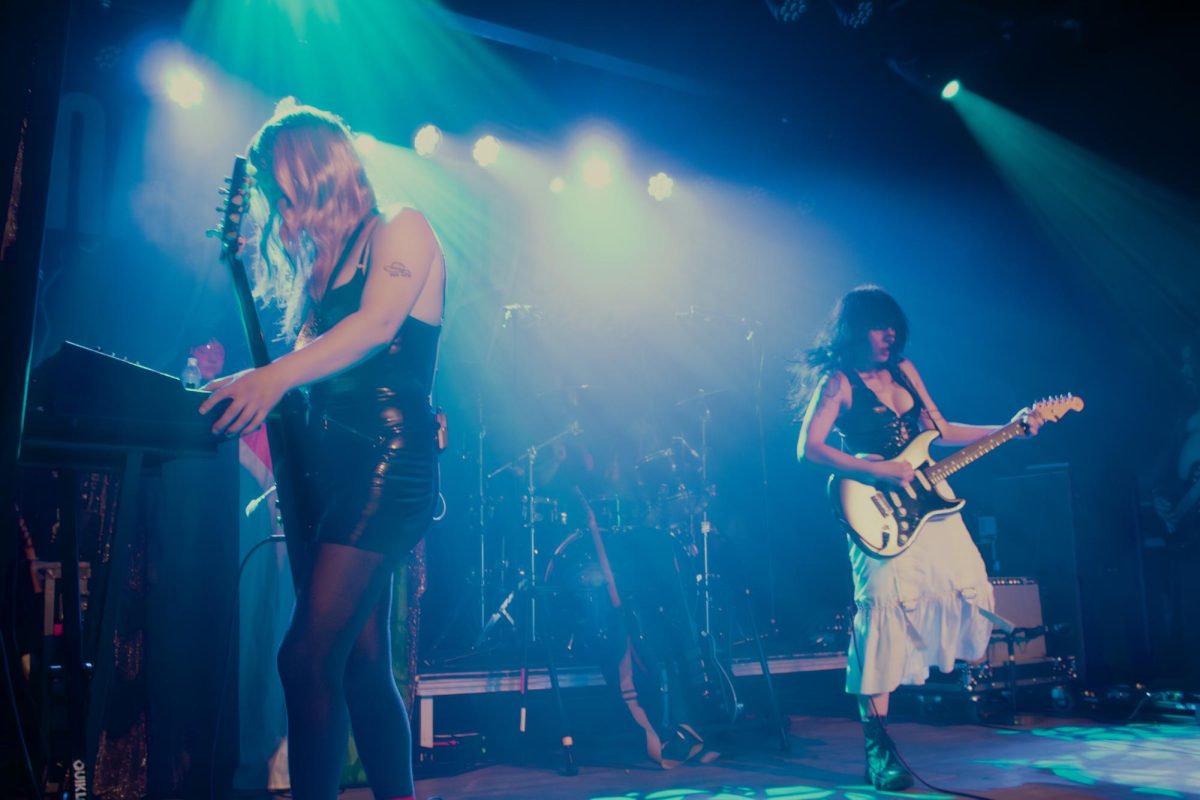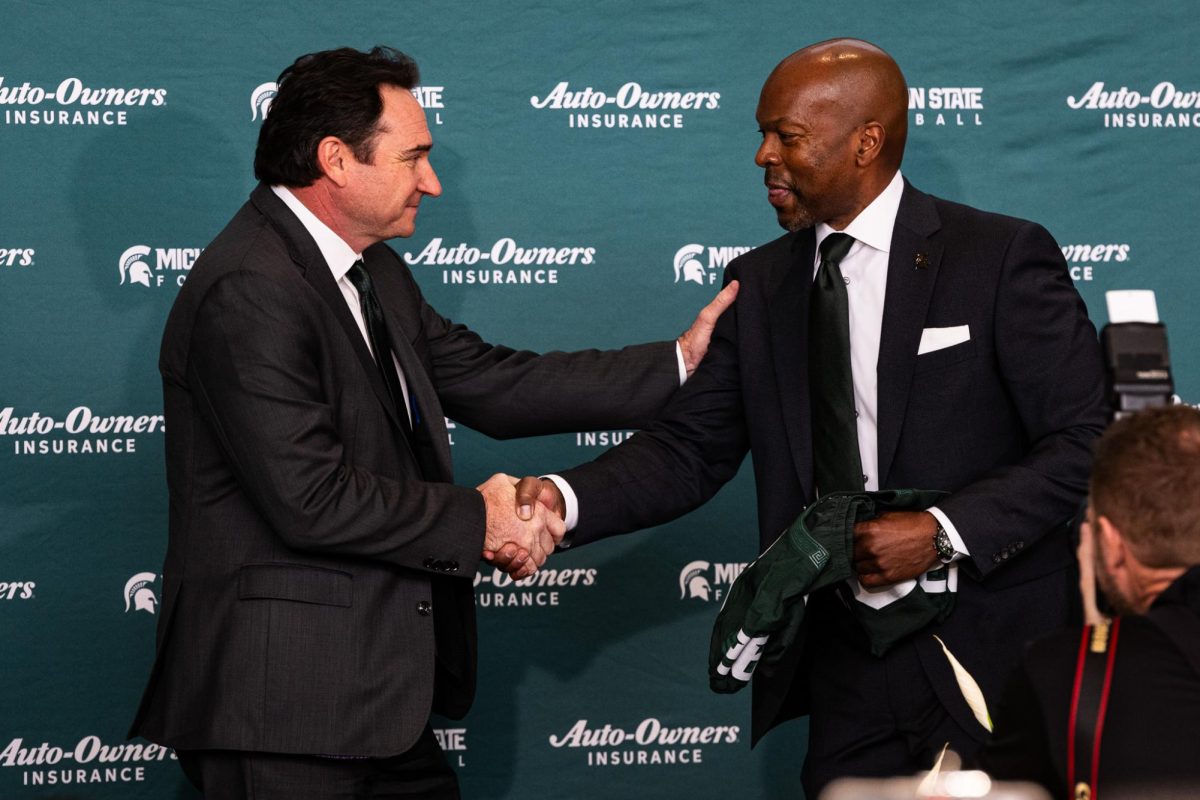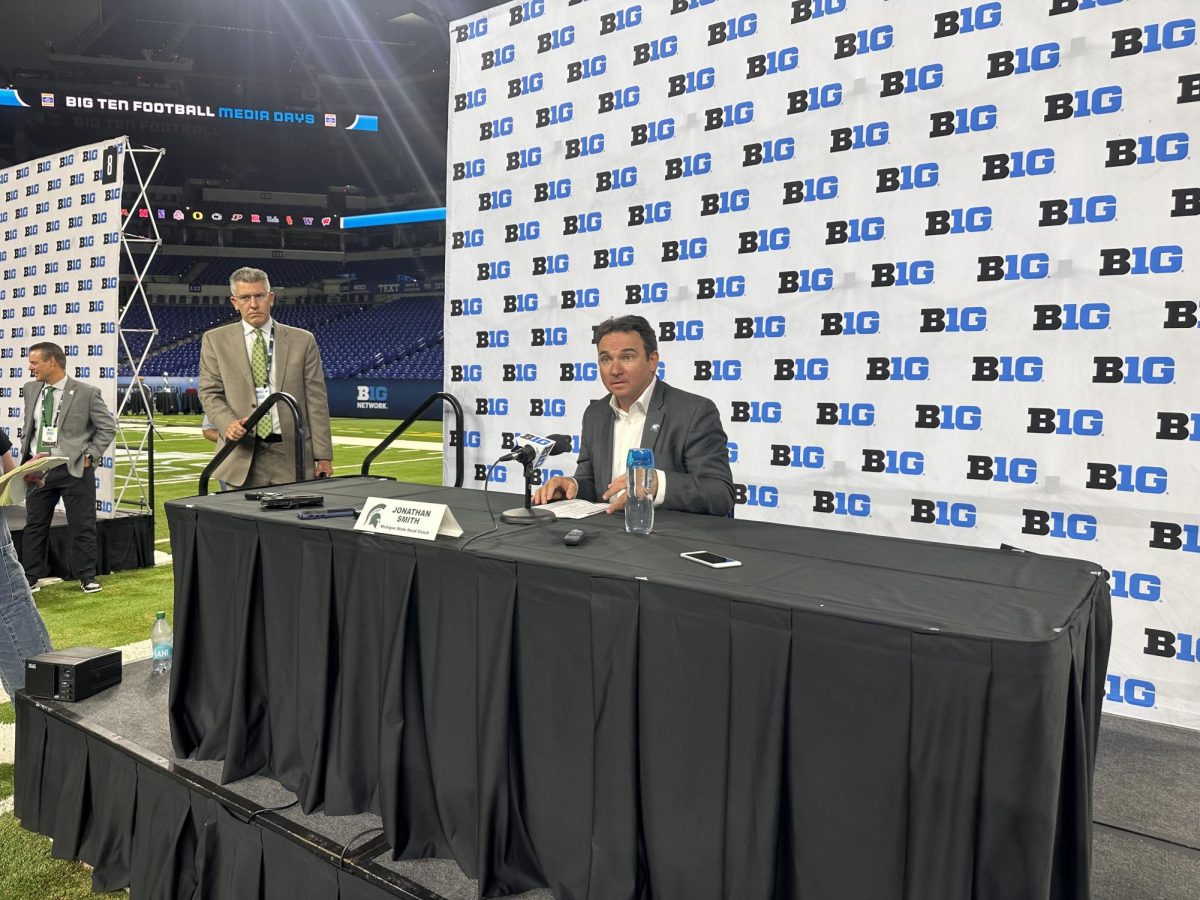Exposure – 2/6/2021 – TRANSCRIPT FOR MSU CLUED
February 7, 2021
Disclaimer: The contents of this interview do not reflect the values or represent the values of WDBM The Impact.
Interview Transcript
Connie Rahbany: Hello and welcome to Exposure. I’m your host, Connie Rahbany, and today I’m interviewing with CLUED from MSU. Thank you for joining me.
Mariam Sayed: Thank you for having us, Connie.
Connie Rahbany: Can I have you introduce yourselves and tell me a little bit about you.
Mariam Sayed: Yeah, sure. So, um, I am Mariam. My name is Mariam. I am currently a junior at MSU. I’m majoring in physiology and French and, um, I am the founder of CLUED and also I am the current president of MSU CLUED. And I’m also pre-med if there’s any pre-meds out there, I’m also pre-med. Um, and yeah.
Sonali Sharmi: Hi everyone. My name is Sonali. Um, I am the vice president of CLUED. I am obtaining a BS at Michigan state in human biology. And I have a minor in health promotions. I’m on the pre-dental track and I’m excited to be here today.
Grant Zydeck: Hi everyone. I’m grant. Um, I’m a junior at MSU as well. I’m double majoring in physiology and psychology, and I’m also pre-med so shout out to all the pre-meds.
Connie Rahbany: And what is CLUED and what can you tell me about it?
Mariam Sayed: So CLUED is basically an organization that we started back in May of 2020. So that was right around the time when the pandemic started, when COVID-19 happened. All of our classes went online a couple of months, right before that. And, um, it just felt like there was a gap of communication and learning between, um, the students and the professors. Uh, in online settings, it’s very different to try and learn and to try and be engaged in classes and things like that. And I personally felt that, um, in my second semester it was my second semester of my sophomore year. And I felt like I wasn’t learning as much as I was in a classroom when I was sitting down and I could talk to the professor face to face. Um, and so, yeah, I basically started this organization. I should, I should say that this is all the founding e-board. So even though I started this organization, um, Sonali, Grant, everybody else who’s on e-board now, they are technically the founding e-board, um, at MSU, because we all started this club together at Michigan state university. So everybody’s played a huge role in that and making the foundation and laying everything out. In the beginning it’s always hard to do these things. So, um, yeah, I’m really grateful for all of their work and. Everything that they’ve done for the organization and keep doing. So, um, we basically started this club in order to fill that gap of communication between the professor and the student, and to make sure that students were still learning, they were still engaged, they were still motivated. And so this club is basically split into two committees. So we have an undergraduate tutor committee and we have a mental health committee because we feel like if you don’t have your mental health in a good state and in a healthy state, you’re not able to succeed academically. And the whole point of this was to make sure that COVID-19, didn’t get in the way of your academic success as an undergraduate student. So we know there’s a lot of pre-professional students out there pre PA pre-med pre dent. Pre-nursing pre-farm whatever you are. You’re pretty much taking the same classes, your first two, two and a half years. So what we did was we started creating videos, um, on an online platform and we have it now, which has expanded to TikTok and YouTube. We have our own YouTube channel. We have our own website, but we basically make one minute videos and these videos are academic videos if they’re from the undergraduate tutor committee and they can be any kind of creative video, so they can be anything like a mnemonic, anything that we used as an analogy or something to memorize a certain pathway, like a certain biochem pathway, we learned like a very silly mnemonic and that just helped us memorize the information, or we do it in funny ways. So we do like a little skit and we play out the atoms and things like that, but they’re very short videos so that people are still engaged and it just helps with your learning a lot. And you feel like there are other students out there who have done it before. So we basically have students who have 4.0’d A class before, um, volunteer to be a student leader in the undergraduate tutor committee. And they basically make these videos and the topics go all the way from general chemistry, biochemistry. You know, um, biology, physics, calculus, all of those things. Plus some language classes or some language videos, I should say. Um, and our second committee, the mental health committee is basically dedicated to making sure that all the students are in a good place, mentally making sure that they are physically fit, making sure that they’re not slacking off because you know, it’s online. They don’t really have to show up if they don’t want to. So they’re very encouraging videos. They make sure to do things like healthy recipes, just to make sure you’re not binge eating all the time and feeling like you’re behind and you’re de-motivated and, you know, falling into imposter syndrome and things like that. So that’s basically what the mental health committee tackles. And I think together both committees, um, are doing that job of filling the, you know, the gap in communication between professor and student during this time, and really helping students focus and get through their undergraduate career during this time.
Connie Rahbany: So CLUED obviously has great goals going on right now, but do you see any long-term goals that you have in the works right now?
Sonali Sharmi: Something that I would say about CLUED and what we really want to do is that right now it’s more of a club at Michigan state university because it has COVID right now and it’s online. So the best way to get people to be engaged and use everything that we have to offer was to start a club at MSU. But ideally it’d be a resource for students to use eventually one day, maybe all over the country and for like other schools to start clubs, other people to like pitch in, cause like the more people that have gotten more involved, the better and the bigger ideas that we have to incorporate and include and just really been able to expand that way. So I know we have some people. Or some leadership volunteers that are from university of Michigan and some other colleges across Michigan. But ideally it’d be nationwide.
Grant Zydeck: I would add onto that. Um, if slash when things open up, I keep thinking about how fun it would be to get together with a group of people and like work on a couple of skits, like together or something. Um, and so, you know, this was created in response to the pandemic, but this is something that we think will be a resource for a long to come after that. So.
Connie Rahbany: All right. And who can get involved with CLUED?
Mariam Sayed: So because CLUED is basically it’s organization on its own. And then we have an MSU chapter that is, um, really active right now. Basically anyone can join in. So any student from anywhere across the country can kind of join in. The only, um, as Sonali said, I think it’s it’s limited right now just because we haven’t expanded and been able to advertise to so many people across the country. We haven’t seen any participation with those people, but, um, It’s definitely open to any student, because this is something that all students, all pre-professional, all pre-health students, you know, would want to be a part of. And, it’s something that can help all of those students. So it’s definitely not limited to the people that are active right now. Really anyone in the country can, can join in.
Connie Rahbany: And do you currently have any involvement with faculty or other organizations or, um, yeah. Any involvement with any of that?
Mariam Sayed: So obviously we have our faculty advisor who is, um, Dr. Kirstin Parkin and she is in the molecular biology department at MSU. So she’s our advisor so she’s heavily involved with the stuff that we do. She knows what’s going on, our events, our videos, how we do things, um, the management side of things, and um, so we’ve had events in the past where we had stuff focused towards just predental students or just towards pre med students. And so we’ve paired up with other organizations like, um, MSU pre dental club, where we did an event and we had a dental student come in and talk about experience and how to apply to dental school. Um, talked about the pathway to becoming a dentist and all that stuff, and they helped us advertise for that event. So. Um, anything that’s specific to a certain field. There’s usually a club here at MSU that kind of pairs up with us and we’re able to work with them to organize events and kind of advertise to relevant students.
Connie Rahbany: And I know you said that this is available to anyone, but is there a certain direction that you go with your content right now? Is it towards a certain demographic of students or is it pretty wide open right now and available to other majors? Like BA’s and stuff like that?
Mariam Sayed: So I think this kind of goes into also what Sonali said. So, um, even though, yeah, it technically is open to all students. We focus more on any student who is going into a pre health or pre-professional, um, any kind of career path that falls under that category. So anybody who will be taking these courses in their first two years, it’s the same across all pre-health fields. So anyone who’s taking general chemistry, biology, biology two, both semesters of, um, you know, biochemistry, organic chemistry. Um, so all of these STEM based classes, anyone who’s going into a career that is STEM based or language-based, those are the people that we really focus on at this point because our club is catering to those students who I feel like are missing out on a lot of opportunities, learning skills that you pick up in your first two years at a university, especially for people like freshmen, who, you know, it’s really hard to get adjusted to university life and having to switch all the way to completely online virtual setting of learning is really, really hard to do so. Um, those are the people that we’re really focusing on. That’s the demographic. I would say we’re focusing on.
Connie Rahbany: I also have to ask, does CLUED stand for anything or where did that name come from?
Mariam Sayed: Yeah. So CLUED is just short for collaborative classroom education because it’s basically a group of students working together that may content for other students. So like I said, it’s students who have 4.0’d A class before we know how it’s like in that class. We know the struggles that you go through as a student, so we know how hard it is. And so we work hard so that these new students don’t have to make the same mistakes that we did when you were in the class.
Connie Rahbany: And then this question is for all of you from your experience, how have you seen this benefiting others? Is it individually? Is it communal?
Sonali Sharmi: Definitely think this is meant to be like a platform where not only is it just helping you benefit academically, but also to meet other people that have the same ambitions and passions as you. And to be able to experience these like this journey to get into this pre-health or career path that you would like to go into. I mean, it’s definitely helped having Mariam and Grant being able to just talk about some of the classes that we’re in right now, and like, be able to understand and relate when you’re super stressed out about like certain, overwhelming issues and like them to be able to understand and relate. So I definitely think that not only is it just for academics and mental health, of course that’s one of our main priorities, but it’s also supposed to just be like an information database as well as a social aspect for people to come meet each other and they can do those at our events where we’re having guest speakers or, you know, one, one we did was, uh, peer advising. So we were more like the peer advisors and students could kind of bombard us with like all their like burning questions that they were so unsure of, um, going into like the career path and like they’re, they can even talk to each other, get to know them, see if they’re in the same classes or not because online, who are you meeting like in class. So I can’t imagine being a freshmen And not knowing anyone, maybe being out of state and everything. It’s so difficult. So, yeah.
Grant Zydeck: Um, yeah, I would add to that, uh, I mean there’s, you can kind of look at it from two standpoints. You can look at it like how you’re helping the other people. Like when you a platform that we use a lot is TikTok. And so when you see like one of our videos, like get a bunch of user, a bunch of likes, or like give comments like, Oh, this actually makes sense to me or whatever. It’s a really a good feeling. And. It’s kind of cool to see like that social aspect, especially because that’s been really hard on everybody with pandemic. Um, and then like, from our standpoint, like I was just filling out some survey or something and it was about teamwork and it just like, you don’t, I don’t know if we really realize it or think about it that much, but just to have like this organization to work with during this time, it’s really good for your mental health and just like to feel like you’re helping other people right now.
Mariam Sayed: I agree with both what Sonali and Grant said. And I just wanted to add to that and say that I think what’s unique about CLUED is that it’s a mutual, like win-win type of situation, because I think if you’re a student volunteer and you’re making content for people you’re also learning at the same time. So like Sonali said, if you’re studying for the dat or the M cat or something, or you’re in a class right now, and you’re making videos for a specific subject, you’re learning at the same time, you’re coming up with mnemonics, you’re coming up with analogies and you’re like, wow, I remember making this video last week or whatever. And so it helps you learn at the same time. Um, and. In that same way, you’re helping other students because students wouldn’t have thought about, you know, these silly mnemonics and these skits that we do, they find it funny, but they’re also learning at the same time. And, um, like Grant said, when you see it on our social media platforms and you see it on YouTube and TikTok and stuff, and people commenting like, wow, this is so funny, but it actually helped, you know, that’s a great feeling and that’s really the point of CLUED. We really want to make sure that COVID 19, doesn’t get in the way of everyone’s success as a student.
Connie Rahbany: And what do normal operations look like? Do you hold meetings or do you do regular content drops on your website and TikTok, how’s that all work?
Sonali Sharmi: Yeah. So basically every Sunday we have a meeting with just everyone that is producing content whether it’s MHC and UTC. They both, we meet together and then we have specific e-board positions. Or directors that are kind of handing them their topics, as well as guiding the feedback because everyone is assigned to watch someone else’s video to make sure that whether it’s for the undergrad teaching committee that it’s accurate or the mental health it’s good quality. So we do that which is helpful because then we get to talk and see what we can improve since we are so novel and what things we’re doing. Right. Um, yeah.
Connie Rahbany: You’re listening to 89FM WDBM, East Lansing. I’m Connie Rahbany, your host of Exposure. And today we’re talking to MSU CLUED. And so my next question, you were established in May of 2020 due to COVID-19. Was this something you’d had in the works after realizing, wow, this virus isn’t going anywhere yet. I think when this virus first hit, we didn’t expect it to be this long.
Mariam Sayed: Yeah, I think that’s exactly where it came from. The whole idea for this organization came out of that one semester where we shifted in the middle of the semester from in-person learning, face-to-face learning to going completely online. And some of the classes that I had at that time were really important for my career and what I wanted to do later on. So organic chemistry and physics and all the other classes I was taking at the time, I felt like I had a great understanding and a great grasp on all the topics. In the first half of the semester when we were in person. And then when we went to the second half where we were just, you know, at home and everybody was doing things, virtually professors couldn’t figure out how to use zoom. It was just a very different experience that I didn’t feel like I was getting that same, um, quality of learning that I was getting in person. And so I think everyone could relate to that at the time. And so that’s kind of where this organization came out of. We just really want to make sure that. The fact that we had to face that as, you know, sophomores or juniors or whatever we were at the time, we want to make sure that students in the future don’t have that same issue. That online learning shouldn’t be a barrier for them to be able to succeed academically.
Connie Rahbany: And was this something you expected to be running this long? I know you talked about a future for CLUED, but when you first started it up, was this expected?
Mariam Sayed: No, definitely not. Because I think when we started, we had about maybe like 10, 10 students, like total who were creating content, who were directing CLUED and it was just the same group of people. And you know, now it’s expanded to, we’ve had over, you know, like 25 people at events we have around 25 people who are creating content just for CLUED. Our weekly meetings have expanded, our events, the numbers and the people that are showing up, those have expanded. Um, and yeah, it’s just come out to so many different organizations, so many different students. Um, and it’s reached a lot of people since we started and I’ve seen a lot of growth in it. And of course, with our TikTok videos and YouTube videos, you know, at the beginning, we weren’t getting a lot of views or anything. And then, you know, we hit one video that was like one K and 1.3 K, something like that. So, um, we know that it’s going out there and, um, hopefully it is helping people and it is reaching more and more students.
Connie Rahbany: And you touched on. The fact that you’ve had past events, what kind of events were those? And you also have an event coming up. Want to talk about that for me?
Sonali Sharmi: Yeah. So the next event that we have coming up is on February 8th, at six 30, it’s kind of, uh, applications are opening soon in June for this next round cycle. Well, Across all pre health professions. So it’s kind of just like collect yourself, get ready for it, see what, what you’re getting yourself into. So, um, we’re kind of going to be going over like personal statements, the application process, their secondary applications that get involved, um, sending letters of intent, interviews and stuff. Then we also, hopefully we’ll have a med student. Who’s already done the process who will have a little bit more of experience to be able to share What it’s like and what we’re getting ourselves into. But as of the past events, we’ve done some really cool events. Um, one of our last events was how to get involved in research. Research is kind of like a dark horse that like is vital for your application but no one knows how to get into it, you know? And so at least Mariam and Grant, probably talk more about this cause they’re in research, but, um, it was an event of what they’re doing in their research and then how to go about it how to email and what to email and the professors, um, where to look for research, the process of getting into research. Once you finally heard back from the professor, um, yeah, we’ve done a couple more events. Grant, do you want to share?
Grant Zydeck: Yeah, just like a little more as a whole. It’s a really good way to just kind of get our word out to more students and get CLUED out there because social media sometimes only goes so far, but when you send out an email blast with an event like this, which has like really helpful information, like credible people who are going to be there to talk about things it’s a really great way to get out there to other people.
But, um, yeah, some of the other events we did, like last semester we had the medical school pathway. So we had medical students from different stages. So like a first year medical student, like 3rd year medical student and as a resident, um, which has all stages before you become like a full doctor. Um, so that was pretty good. Um, yeah.
Connie Rahbany: Has the events being online, complicated things at all?
Mariam Sayed: I would say, um, I mean, there’s a benefit also to having online events, just because now we can invite really anybody without having to worry about transport or commute or how they’re going to get there. So they could be across the country and we could invite them as a guest speaker, which is really, really cool. So, um, we’ve had medical students normally they would be in residency and they wouldn’t have the time to drive over to Michigan state university and be able to come and speak and then go back on a normal school day. So for them to be able to just log onto their computer, I think it’s actually made it easier for us to get guest speakers in, to talk about their experiences. Like Grant said with the medical school pathway event where we had two medical students and one student who was doing her residency, completing her residency. Um, normally those people wouldn’t be available to come in and speak to our events, um, you know, on such short notice also. And we were able to make that happen just because it is online. So. I mean, I think it is difficult to get student engagement sometimes just because people will sign up for event and then, you know, get lazy and be like, Oh, you know, I don’t really have to show up if I don’t want to. Or it’s hard to have people engage and want to ask questions, unmute themselves. Um, but I think once the flow gets going and people start asking questions and we, you know, kind of get them engaged, then everybody feels comfortable. Whoever’s at the event.
Connie Rahbany: And looking ahead, is there anything that CLUED has to look forward to at this time?
Mariam Sayed: I would say one of our events, which is coming up, um, which is our med versus PA event. I think that will be a really exciting event for people to come to just because we plan to do a comparison between events. So we’ve done events where it’s. Like targeting only pre-med students or targeting only pre dental students, but they’re only getting that one point of view. So if they don’t show up to both of those events, they’re not going to see the difference between the dental pathway and then the medical school pathway. So this event is unique. Um, something that we haven’t done before in the sense that. We will have a medical student there and we plan to have somebody who is a physician’s assistant or who has worked as a physician’s assistant before, and be able to talk about the differences between the lifestyle, the number of years in school, the application cycle, what is important. What’s not important in both careers, um, how they’re similar and how they’re different and give people, um, a choice to kind of, you know, decide is this really what I want to do? Do I want to go down the physician’s route or do I want to go down the PA route? Um, so yeah, I think that’s something that I’m looking forward to at least.
Sonali Sharmi: I’m looking forward to, uh, hopefully next year being able to do meetings in person. I think, yeah. It’s much more difficult to get guest speakers to come in from wherever they’re traveling from, but I definitely think it’s easier on the student engagement. Hopefully we’ll be able to form closer bonds and relationships with some of the people that are deciding to come to our events and we’ll get more consistent people coming who eventually can take our positions when we graduate, if they’re really involved and really care about CLUED. But, I’m just excited to be in person eventually. And to be able to do this. Know it’s meant to be online, but you still can reach people being online when we’re in person because other people from other schools or, um, just nationwide can see our content still.
Connie Rahbany: If you could describe your experience with CLUED all in one word, what would it be and why?
Grant Zydeck: I can start if you want. Uh, the word I’d use to describe CLUED’s What would you say CLUED’s like I was just going to use the word impactful. So there you go. Um, I feel like it’s made an impact on all of us and we’re definitely trying, and we are making an impact on other pre-health students. So.
Mariam Sayed: I think, I might say resilience if I was to describe CLUED, because I think the whole point and where CLUED kind of came from was a whole, you know, Basically a promotion of just being resilient as a student and not letting things get in the way, um, not letting things de-motivate you and make you think that you’re not good enough for a certain career and thinking that, you know, oh because now I did bad in this class I’m not able to do this. And because now everything is online, I’m not gonna be able to succeed. And, um, you know, not letting those things get in the way of your dreams and your careers and things. So I think I would say, um, resilience would be a good word for CLUED.
Sonali Sharmi: Man, you guys came up with such good ones. Mine kind of aligns with Mariam’s. I would say determined. I think, like we had talked about earlier, we never really saw where this was going to go. We didn’t know how to go about it. We had changed so many things. We, as individuals are very determined and very ambitious to pursue whatever career. And I think that’s part of the reason why we’re so passionate about CLUED, but also alongside the people that are, are taking advantage of our resources and stuff. They’re obviously very passionate and very determined about succeeding, in school and attaining their ambitions as well. So I would definitely say CLUED is determined.
Connie Rahbany: And if there’s anybody listening to this right now that is interested in learning more about CLUED or could benefit from it, what would you say to them?
Mariam Sayed: I would tell them to follow us on YouTube. They can find us on YouTube. But also if they are on TikTok, I would say TikTok is a great platform where they can reach us. They can find all of our information. They can always private message us. So it’s @clue.live. So if they follow @clue.live, Um, they can find our TikTok. They can also find our Instagram, um, which is MSU clued. And, uh, yeah, if they have any other questions or anything, they can also go to our website, which is cluedonline.weebly.com. So it has pretty much all of our contact information. Um, our email, if you want to get in touch with us is [email protected].
Connie Rahbany: All right. And is there anything else that you’d like to add that I might not have asked you about.
Mariam Sayed: I think your questions covered it all. Connie, you had some really good pact backed in there questions.
Connie Rahbany: Well, I appreciate it. Mariam, Sonali and Grant. I want to thank you for speaking with me today about CLUED.
Sonali Sharmi: Thanks So much for having us.
Mariam Sayed: Thank you for having us.
Grant Zydeck: Thank you so much for reaching out. Yeah.


